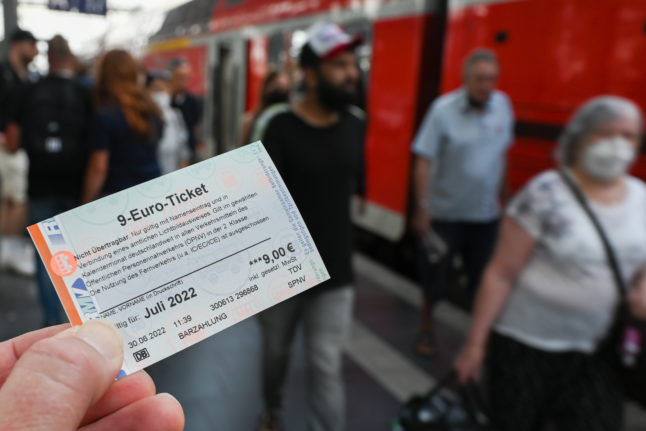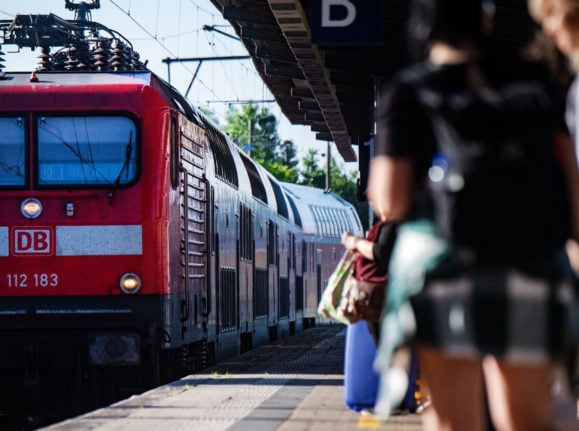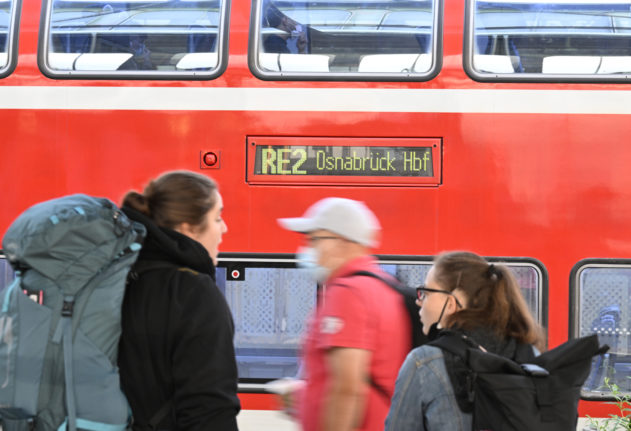1. You won’t be able to travel throughout Germany with one ticket
People in Germany enjoyed a very cheap transport offer this summer. For the months of June, July and August, public transport cost just €9 per month – or €27 for the whole period – for everyone, including tourists (although children under six generally travel for free).
One of the nicest things about the €9 ticket was that it was available to use on all the different local public transport networks across Germany.
That means you didn’t have to buy a new ticket when you travelled to another region. The ticket could also be used on regional trains (as well as buses, the U-Bahn, S-Bahn and trams). You could travel long distances – and even into foreign countries in some cases.
READ MORE:
- Which foreign countries can you visit with Germany’s €9 ticket?
- How to explore Germany by train with the €9 ticket
- Nine of the best day trips from Munich with the €9 ticket
From September 1st, things get a little more complicated again. You’ll have to buy a ticket in the area you want to travel in. So if you visit Hamburg from Cologne, your monthly card will no longer be valid there (and the €9 ticket will be no more).
Readers of The Local told us recently that the affordability and simplicity of the €9 offer is what makes it such a draw.
2. Tickets vary in price across Germany
The cost of public transport varies hugely depending on where you are.
According to a study by German Automobile Club ADAC in November 2021 (although prices are mostly the same this year), weekly tickets – at €36 – were most expensive in Berlin, while in Munich they cost just €17.80.
The difference in monthly tickets was similarly striking. In Munich, these can be purchased for as little as €57, while in Hamburg they cost almost twice that amount at €112.80.

Day tickets for adults were most expensive in Berlin, Bonn and Cologne at €8.80 and cost around 60 percent more than in Frankfurt, where the price is about €5.50.
For a single journey adults in Munich paid €3.40, while in Hamburg a single ticket cost €2.40.
These general prices, which are available on the websites of the local public transport operators across the country or by asking a member of staff at a ticket office, will return from September 1st so be aware of the ticket you need and the zone you are travelling in.
And remember to validate your ticket before travel if it is required in your area to avoid having an unpleasant experience with a ticket checker.
3. … But public transport will likely go up in price soon
Transport associations across Germany have been saying that customers will have to reckon with price increases as they try to expand the infrastructure and deal with the rising costs of energy.

German press group DPA surveyed operators – and they said they were planning to increase the cost of their tariffs in the near future.
READ ALSO: Will German transport companies hike fares after €9 ticket?
In and around Stuttgart, for instance, fares are set to rise by an average of 4.9 percent at the start of the new year, while in the greater Nuremberg area they will go up by three percent.
In the region covered by the Rhein-Main transport association, which includes Frankfurt and the surrounding area, a 3.9 percent increase was put in place in July.
Several of Germany’s regional transport operators are due to meet in September and October to decide on future tariffs.
The travel association Verkehrs und Tarifverbund Stuttgart explained: “Currently, transport companies are facing major financial problems in view of rocketing energy prices.”
They said that more funding was needed from the government simply to keep public transport running as normal.
4. There may be another reduced transport offer soon
The €9 ticket has been an overwhelming success, at least in the eyes of public transport users in Germany. Even when trains were packed and there were reports people had to be turfed off platforms on busy services – nothing could dampen the spirit of the €9 ticket. That’s why #9Euroticketbleibt (€9 ticket stays) has been trending on Twitter.
Affordable public transportation means so much to the many people who use it! If you need proof, take a look at #9Euroticketbleibt, where people are pleading for Germany's discounted rail card deal to be extended!
— nathan ma (@nthnashma) August 23, 2022
But Germany’s coalition government – made up of the Social Democrats, Greens and Free Democrats – have had a lot of discussions on the future of low-cost travel tickets.
The climate-friendly Greens, and other groups, have been pushing for a follow-up to come into force as soon as possible after the €9 offer ends.
There have been lots of proposals put forward, including a €29 monthly ticket, a €69 offer – and a €365 annual ticket.
Transport Minister Volker Wissing, of the FDP said he had convinced his colleague, Finance Minister Christian Lindner, who pulls the purse strings, to consider a follow-up ticket after Lindner had initially ruled out.
The sticking point is where the money would come from. The government has ploughed €2.5 billion into the €9 summer offer, but with a difficult winter coming up amid the energy crisis, politicians won’t be keen to offer out more than necessary for public transport.
READ ALSO: German transport operators float plans for €69 ‘Klimaticket’
5. Germany’s public transport is popular – at least in cities
Regardless of whether there’s a new cheap transport ticket on the way, it’s fair to say that people really use the train, bus and U-Bahn network.
In 2021, around 7.88 billion passengers were transported on Germany buses and trains alone. Cities are packed with bus stops, train stations and trams.
But it’s not great for everyone. According to a 2021 study by Deutsche Bahn subsidiary and mobility startup ioki, access to public transport is significantly reduced and often not up to scratch for about 55 million people living in the suburbs or rural areas.
Vocabulary
Public transport – öffentlicher Personennahverkehr (ÖPNV)
Ticket – (die) Fahrkarte
Costs – (die) Kosten
Cheap – billig
We’re aiming to help our readers improve their German by translating vocabulary from some of our news stories. Did you find this article useful? Let us know.



 Please whitelist us to continue reading.
Please whitelist us to continue reading.
Member comments